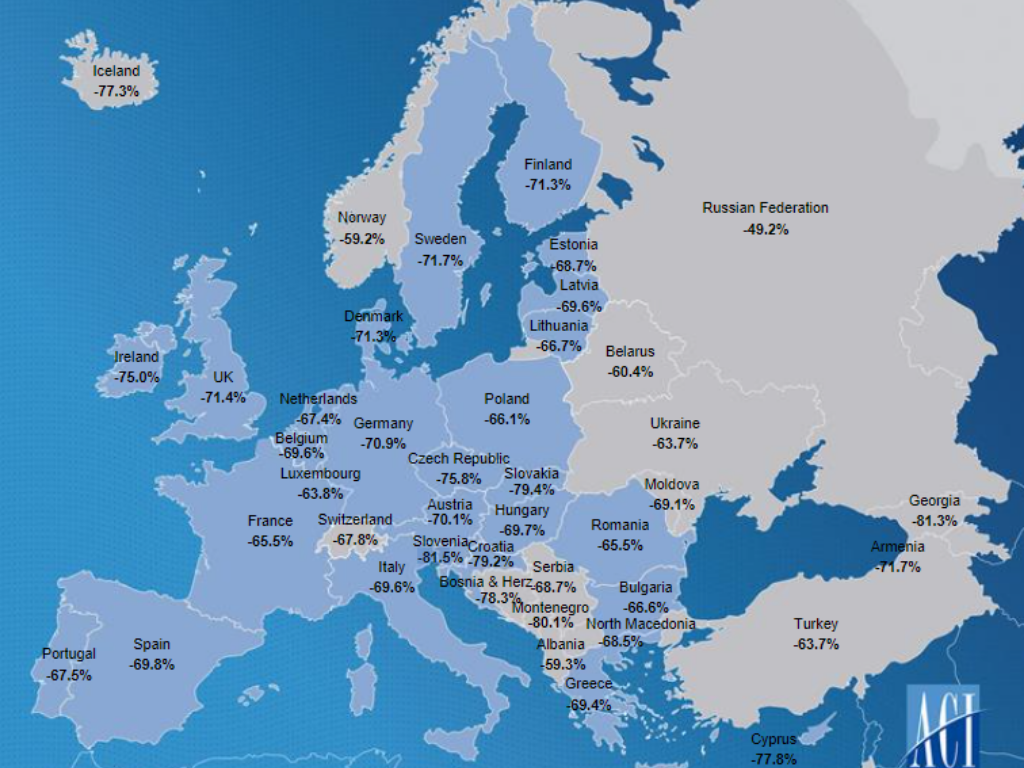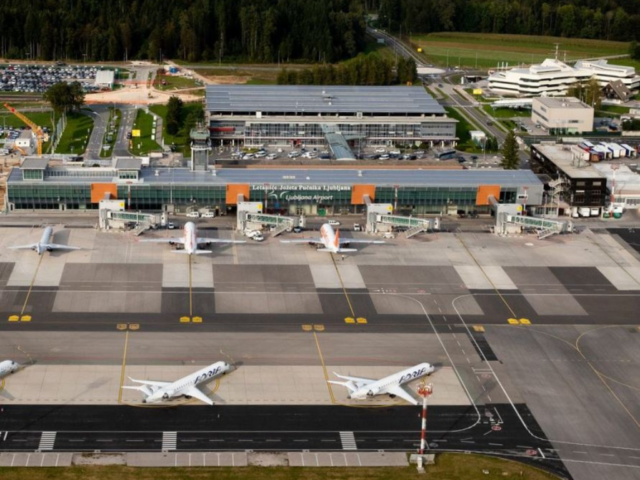Slovenia is the most affected market in the former Yugoslavia by the coronavirus pandemic based on passenger volumes while Kosovo has seen the smallest decline in traffic during the first three quarters of the year. Based on data provided by Airports Council International (ACI), the Slovenian market saw its figures tumble 81.5%. It is followed closely by Montenegro with a 80.5% decline, Croatia with 79.2% and Bosnia and Herzegovina with a 78.3% reduction in passenger numbers. Fairing somewhat better were Serbia with a 68.7% decline in figures, followed by Macedonia with a 68.5% reduction and the Kosovan market, which saw its traveller numbers decrease 60.6%.
Belgrade Nikola Tesla Airport continues to maintain its position as the busiest in the former Yugoslavia, followed by Zagreb and Pristina, while Podgorica has overtaken Ljubljana in terms of passenger numbers. Belgrade was the 91st busiest airport in Europe, behind the likes of Riga, Minsk and Malta but ahead of Larnaca, Gothenburg and Keflavik (Reykjavik). Zagreb was the 120th busiest on the continent, behind Luxembourg, Vilnius and Tirana but ahead of Cluj, Tallinn and Bodo in Norway. Pristina was close behind, ranking as the 125th busiest in Europe, ahead of Chisinau, Yerevan and Split. The Croatian coastal airport itself ranked 130th in Europe, Skopje 136th, Dubrovnik 164th, Podgorica 165th, Ljubljana 168th, Sarajevo 171st and Tivat 174th.

The average rate of passenger decline at airports across Europe during the January – September period was 67%. Paris Charles de Gaulle was the continent’s busiest airport followed by London Heathrow, Istanbul, Amsterdam, Frankfurt, Moscow Sheremetyevo and Barcelona. Together with Georgia, Slovenia is the most affected country market in Europe, while Russia and Norway have been least affected, primarily due to their large domestic networks. Domestic travel is expected to recover the quickest from the effects of the coronavirus pandemic. Albania also fared well, buoyed by the development of its tourism industry, lack of entry restrictions and the expansion of low-cost carriers into the country.
| Airport | PAX | Change (%) |
|---|---|---|
| Belgrade | 1.485.693 | ▼ 68.7 |
| Zagreb | 785.021 | ▼ 70.1 |
| Pristina | 725.024 | ▼ 60.6 |
| Split | 631.774 | ▼ 78.9 |
| Skopje | 565.617 | ▼ 68.5 |
| Dubrovnik | 306.949 | ▼ 87.7 |
| Podgorica | 278.005 | ▼ 73.0 |
| Ljubljana | 267.780 | ▼ 81.5 |
| Sarajevo | 199.910 | ▼ 78.3 |
| Tivat | 172.493 | ▼ 86.0 |














